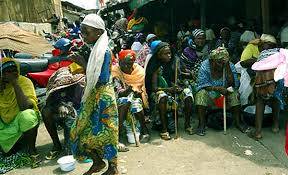No fewer than 6,000 people, mostly women, children and elderly, displaced following the military onslaught against members of Islamist militant sects, Boko Haram and the al Qaeda-linked Ansaru, have fled to neighbouring Niger Republic.
The United Nations High Commissioner for Refugees, also known as the UN Refugee Agency, made this known in a report it presented in New York, United States on Tuesday by its spokesperson, Mr Adrian Edwards.
Edwards said, “Those who spoke to UNHCR say they escaped for fear of being caught in the government-led crackdown,” Reuters quoted him as saying. He added that the presence of the Nigerians refugees in Niger was “putting a strain on meager local food and water resources” on the country which “struggles with food insecurity due to years of drought.”
According to him, the “refugees are either renting houses or staying with host families, who are themselves living in very precarious conditions.”
Edward stated that UNHCR member of staff, who visited several border villages hosting the refugees met some Nigerian families living out in the open and some under trees.
Disclosing that the agency would help the Nigerien authorities to register the refugees, he said further that there were plans to deliver some relief to the refugees and their host communities.
He said that 240 others, comprising Niger nationals and people of other nationalities, also fled from Nigeria to Niger while some ran to Cameroon and Chad in the past few weeks. The two countries also share common boundaries with Nigeria.
The report also stated that the Nigerian “refugees reported that air strikes by government forces are continuing from time to time, and that planes are regularly flying over the states of Borno, Yobe and Adamawa where a state of emergency has been in force since May 14.”
It added, “People arriving in Niger also mentioned the increasing presence of roving armed bandits in several states in Nigeria. The people also spoke of rising commodity prices coupled with pre-existing food insecurity which is also becoming a major concern for the populations of the affected states.”

